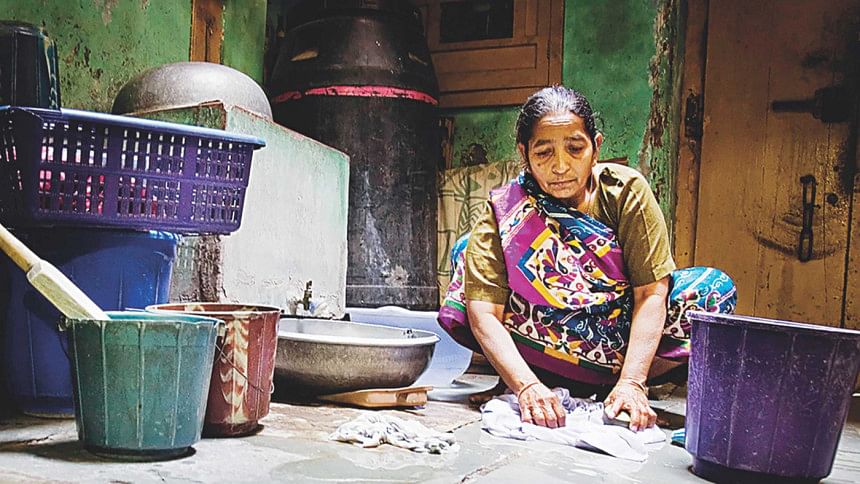Bank accounts for domestic workers may solve many problems

Some days ago, an elderly woman came to my office to open a bank account for her domestic help. Besides a monthly salary, she planned to deposit a fixed amount every month to ensure that her domestic help had a lump sum amount in her bank account after retirement. The woman was unaware of the nitty gritty of the modern banking world. Nevertheless, her intentions were noble.
The opening of an account, however, was not easy. When questioned about the purpose of the bank account, the woman shared a sad story with her banker. She reached a verbal agreement with a man before employing a young girl. The woman had to confirm a monthly payment to her father, besides arranging food, lodging and clothing for the girl. The poor girl has apparently been used as an income generating tool by her father, who had in the meantime fathered another three children. Now, as the girl is about to reach adulthood, she is legally entitled to take her own income and employment decisions. It is with that in mind that the woman came to the bank.
The Domestic Help Protection and Welfare Policy of Bangladesh—approved in 2015—requires registration and service contracts for all domestic workers. It instructs the Ministry of Labour and Employment to provide domestic workers access to the welfare fund created for their financial assistance, insurance and scholarship. However, since the policy is yet to be implemented, the domestic workers' entitlement to the fund is not legally enforceable.
"She loves us the way she loves her bidet."—this was the assessment of a maid about her employer drawn in the famous drama of Jean Genet called, "The Maids". This rather one-sided view has gained even more ground in the age of lockdown. A woman who had taken care of a family round the clock …suddenly discovered the gate of her employer's house was locked.
The workers of our RMG sector, whose minimum wage is set at USD 94 per month against the international standard of USD 188, are considered one of the most vulnerable groups in the world. However, a survey conducted by the National Domestic Women Workers Union revealed that a more vulnerable class exists among the domestic workers of Bangladesh, who on average earn USD 59 a month. According to a 2011 study done by the Domestic Workers Rights Network, around two million domestic workers are engaged in our houses—a major portion of them being young girls from poor families. The live-in house maids of Bangladesh appear unique in the world, since they play almost all roles a house can demand. They work as house keepers, nannies, cooks, cleaners, patient's attendants, gardeners, and more. The government could make the opening of bank accounts mandatory. Bangladesh adopted its National Social Security Strategy in 2015, making provisions for a good number of social security allowances, domestic workers remain beyond its radar.
In Bangladesh, there is still no formal market for domestic workers. Though many online recruiting agencies have recently mushroomed, complaints of cheating abound. Due to the immense poverty prevailing in many parts of our country, many domestic helps seek some sort of shelter in the house of their comparatively rich relatives, neighbours or friends. Many of our houses act as an informal training centre for the domestic workers.
In 2016, the Bangladesh government launched its Overseas Employment Policy to safeguard the rights of migrant workers. However, government policy still lags behind when it comes to protecting the rights of domestic workers. For example, the Domestic Servants' Registration Ordinance, 1961, is there to protect the employers, not workers. Domestic work, which has been recognised as a profession by our labour law, is yet to be properly formalised.
Shifting the informal market of domestic workers to an organised one is not easy. And a forced transformation might lead to a disaster.
The government could make the opening of bank accounts mandatory unless the market for domestic help gets matured enough. The bank account could be opened with a letter from the employer, stipulating the terms of employment, including salary, leave, etc. As a result, a reliable database could be built for domestic workers. Since girls or boys from the age of 12 years can be engaged under the policy, a special minor account in this regard may be approved by the Bangladesh Bank. This could help solve many of the problems we have when it comes to this sector.
Mohammad Kazi Mamun is a banker.

 For all latest news, follow The Daily Star's Google News channel.
For all latest news, follow The Daily Star's Google News channel. 



Comments